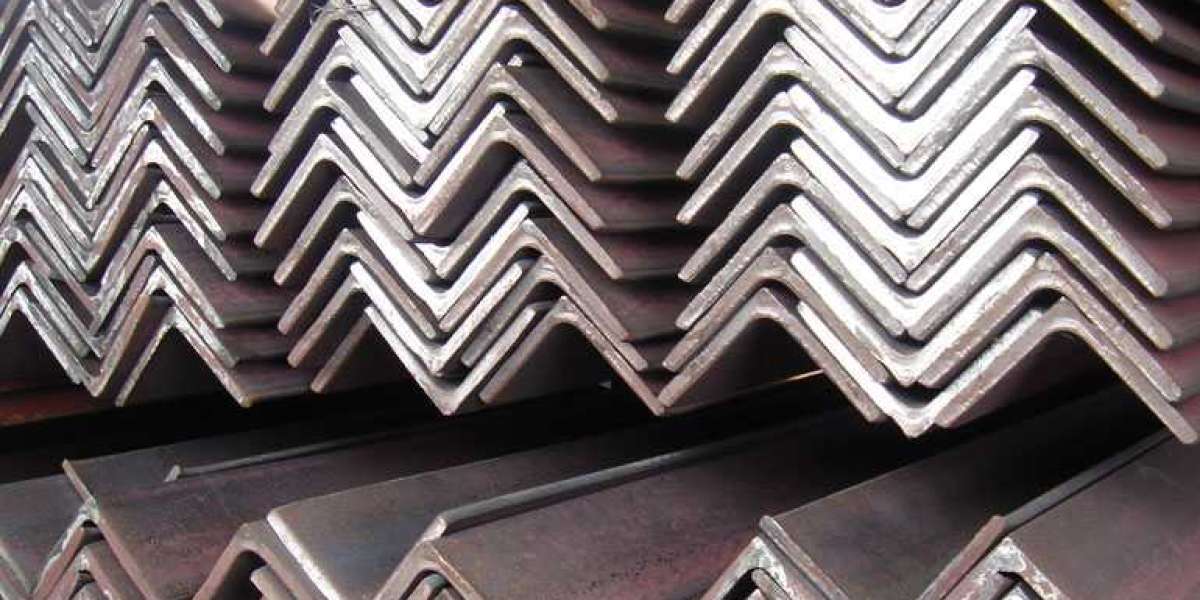Mild Steel (MS) angles are one of the most widely used structural steel products in construction and various industrial applications. These L-shaped steel products are highly valued for their strength, durability, and cost-effectiveness. Their primary function is to support and strengthen structures by providing stability and reinforcement. MS angles come in various sizes and thicknesses, which makes them suitable for different construction and manufacturing needs.
While MS angles are primarily known for their mechanical properties, they also offer notable environmental benefits that contribute to the growing demand for sustainable materials in modern construction and industry. The recyclability, durability, and energy-efficient production processes associated with MS angles make them an eco-friendly choice.
Versatile Applications of MS Angles
MS angles are integral to many industries, playing a significant role in structural and mechanical frameworks.
Construction: MS angles are used extensively in the construction of bridges, buildings, warehouses, and other structural frameworks. They provide strong corner support and are often utilized in framing, roofing, and floor joists.
Automotive: In the automotive industry, MS angles are used to strengthen vehicle frames and support different components, ensuring stability and safety.
Telecommunication: MS angles are commonly used in the construction of transmission towers, where they serve as support structures.
Furniture Manufacturing: MS angles are also employed in furniture manufacturing, particularly for creating sturdy frameworks for tables, chairs, and shelves.
Industrial Equipment: Various machines and equipment require strong structural support that MS angles provide, particularly in heavy-duty industries like mining and agriculture.
Environmental Benefits of MS Angles
- Recyclability
One of the most significant environmental benefits of MS angles is their recyclability. Mild steel is 100% recyclable, which means that it can be repurposed repeatedly without losing its mechanical properties. Recycling steel reduces the need for mining raw materials such as iron ore, which helps conserve natural resources and minimize the environmental degradation associated with mining activities.
Additionally, the recycling of MS angles reduces waste generation and landfill use, as discarded steel can be melted down and reused. By opting for MS angles in construction and manufacturing, industries can contribute to a more circular economy, which prioritizes reducing waste and reusing materials.
- Energy Efficiency in Production
Compared to other materials, the production process of MS angles is relatively energy-efficient. The manufacturing process for mild steel involves fewer energy-intensive procedures compared to the production of alloy steels or stainless steels. This means that less energy is consumed during the production of MS angles, leading to a lower carbon footprint.
Moreover, as the steel industry adopts newer technologies, the energy requirements for producing steel products continue to decrease. Many steel manufacturers, including those producing MS angles, are investing in cleaner production techniques that further reduce emissions and energy consumption, making MS angles an even greener option for environmentally-conscious builders and manufacturers.
- Durability and Long Lifespan
The durability and longevity of MS angles mean they require fewer replacements over time, leading to reduced material consumption in the long run. Structures built with MS angles can withstand harsh weather conditions and heavy loads, reducing the need for frequent repairs or replacements, which in turn lowers resource consumption.
By choosing durable materials like MS angles, industries can contribute to long-lasting and sustainable infrastructure that minimizes the need for additional resources and energy over time.
- Reduced Environmental Impact in Transportation
MS angles are lighter than some other structural steel components, making them easier and more cost-effective to transport. Reduced transportation weight translates to lower fuel consumption and fewer greenhouse gas emissions. For large-scale construction projects that require the transportation of massive amounts of steel, the lower weight of MS angles can lead to significant reductions in transportation-related emissions.
Additionally, many steel manufacturers operate regional production facilities, which helps minimize the distance materials need to be transported, further reducing the environmental impact.
Conclusion: MS Angles as an Eco-Friendly Choice
MS angles are a vital part of many industries, offering strength, versatility, and cost-efficiency. Beyond their practical applications, MS angles also provide numerous environmental benefits that align with the increasing demand for sustainable building materials. Their recyclability, energy-efficient production, durability, and reduced transportation impact make them an environmentally friendly choice for builders and manufacturers looking to minimize their ecological footprint.
For those seeking high-quality MS angles from trusted brands like Vizag Steel, SAIL, and Jindal, visit SteelonCall. Our platform offers a wide range of steel products at competitive prices, along with test certificates to ensure the quality and authenticity of the materials. Contact us at 08062212000 or visit steeloncall.com for more information on how we can meet your steel supply needs while supporting sustainable practices.








